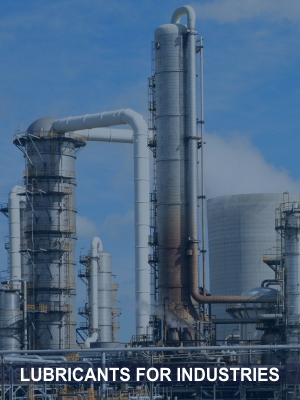Steel & Metal
In the steel industry, lubricants play a crucial role in ensuring the efficiency, reliability, and longevity of various equipment and machinery. The steel manufacturing process involves multiple stages, and each stage may have specific lubrication requirements. Here are some common applications and considerations for lubricants in the steel industry:
Rolling Mills:
- Application: Lubricants are used in the rolling mills to reduce friction between the metal and the rollers, enabling the shaping of steel into desired forms.
- Considerations: High-temperature stability and extreme pressure (EP) additives are crucial to withstand the demanding conditions in rolling processes.
Gearboxes and Drives:
- Application: Gearboxes and drives in steel plants require lubrication to reduce friction and wear, ensuring smooth operation.
- Considerations: Lubricants should provide excellent load-carrying capacity, thermal stability, and resistance to oxidation.
Hydraulic Systems:
- Application: Hydraulic systems are prevalent in steel manufacturing for controlling various processes such as bending, cutting, and forming.
- Considerations: Hydraulic fluids should offer good anti-wear properties, stability, and resistance to oxidation to maintain system integrity.
Cutting and Machining:
- Application: Lubricants are used in metal cutting and machining processes to improve tool life, surface finish, and overall machining efficiency.
- Considerations: Depending on the process, lubricants may need to provide effective cooling, anti-weld properties, and corrosion protection.
Heat Treatment:
- Application: Lubricants are utilized in heat treatment processes to facilitate the movement of metal parts and prevent sticking.
- Considerations: Heat-resistant lubricants are essential in high-temperature environments.
Conveyors and Bearings:
- Application: Lubrication is necessary for conveyor systems and bearings to reduce friction and prevent premature wear.
- Considerations: Lubricants should have good adhesion, water resistance, and anti-corrosion properties.
Dust and Contaminant Control:
- Application: Lubricants can also be used to control dust and contaminants in steel manufacturing environments, contributing to equipment reliability.
- Considerations: Lubricants with anti-contamination properties may be preferred in certain applications.
Environmentally Friendly Lubricants:
- As sustainability becomes increasingly important, some steel manufacturers may opt for environmentally friendly lubricants to minimize their ecological impact.
It's important for steel industry professionals to work closely with lubricant suppliers to choose the right products for specific applications. Lubricants should be selected based on the equipment requirements, operating conditions, and environmental considerations. Regular maintenance and monitoring of lubrication systems are also critical to ensuring optimal performance and minimizing downtime in steel plants.
Product Technical DataSheet
ANTI-SEIZE-GZ Paste
Anti-Seize Nickel Compound
Anti Seize Copper Compound
ANTI-SEIZE ZINC COMPOUND
SYG-542 ANTI SEIZE CAG BASE LEAD FREE GREASE
SYG-1950 ANTI SEIZE MOLY PASTE


